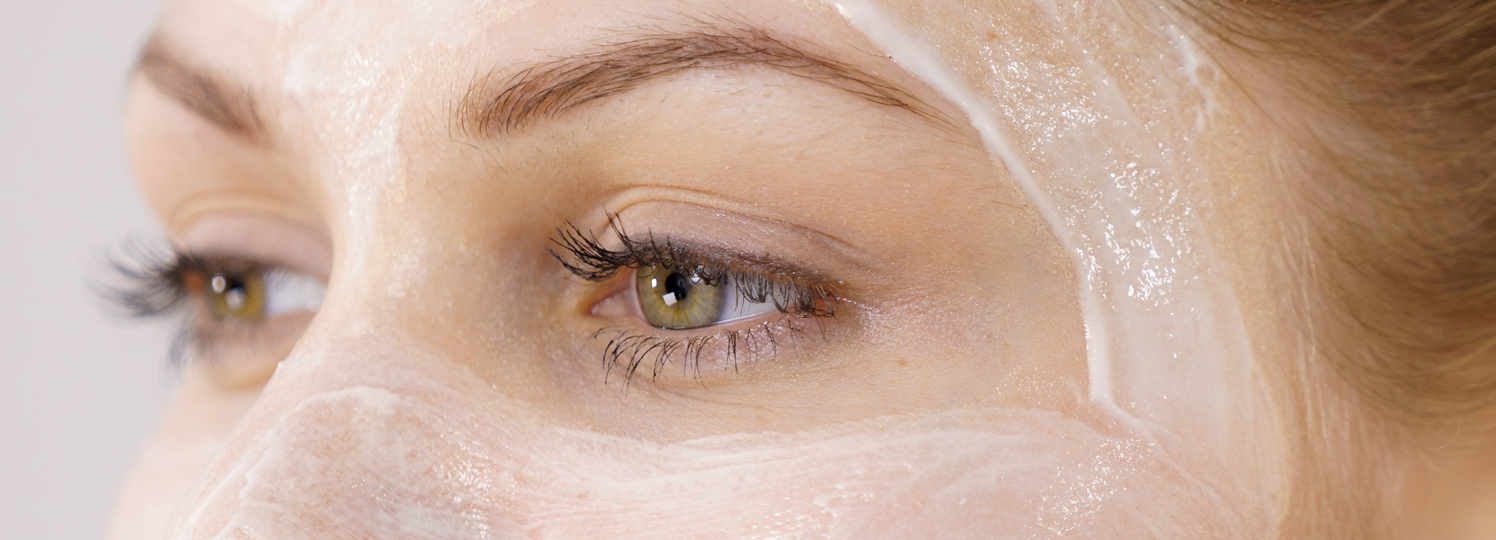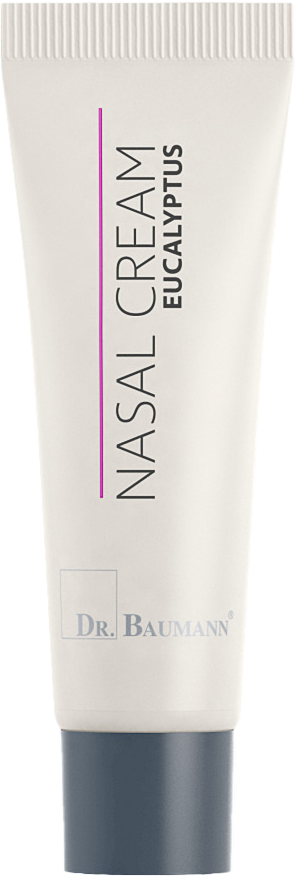

Special Care


Special Care
Precious active ingredients such as natural vitamin E, panthenol, vitamin A and high-quality oils soothe the nasal passage in a healthy way and reduce the formation of encrustations. The eucalyptus oil effects a pleasure feeling of freshness by nasal breathing.
7 ml Tube
Art.-Nr. 1493
Aqua, Ricinus Communis Oil, Simmondsia Chinensis Oil, Glycerin, Urea, Eucalyptus Globulus Leaf Oil, Panthenol, D-alpha Tocopheryl Acetate, Polyglyceryl-2 Dipolyhydroxystearate, Zinc Ricinoleate, Sodium Lactate, C18-36 Acid Triglycerides, Diisostearoyl Polyglyceryl-3 Dimer Dilinoleate, D-mixed-Tocopherols, Sodium Ascorbyl Phosphate, Lactic Acid, Allantoin, Tribehenin, Dimer Dilinoleyl/Dimethylcarbonate Copolymer, Magnesium Sulfate, Zinc Oxide (nano), Limonene
Aqua:
Water. It accounts for around 65% of the weight of the human body and is therefore of fundamental importance for bodily functions, including those of the skin. In many cosmetic products (aqueous solutions, cleansers, emulsions), water is the ingredient with the largest proportion of the formulation in terms of quantity and forms the basis of the aqueous phase in emulsions. Water is a good solvent for polar (hydrophilic) substances such as alcohols, water-soluble vitamins or salts. For use in cosmetic products, the water used is generally pre-treated to remove microorganisms that could lead to spoilage of the product or dissolved salts that may impair the stability of emulsions or gels (sterilization and desalination).
Ricinus Communis Oil:
Is the storage form of vitamin A, which is converted into free vitamin A in the skin. It stimulates cell division and therefore has a strong regenerative effect, particularly on pre-aged skin and with prolonged use. Studies have even shown an increase in the collagen content of the skin, a slight reduction in wrinkles and an increase in skin elasticity.Castor oil: Oil from the seeds of the castor tree, very well tolerated, penetrates well into the skin.
Simmondsia Chinensis Oil:
Some kind of oil
Urea:
The water-soluble urea is used in numerous cosmetic products. Urea is a component of the natural moisturising factors of the horny layer (content between 7 % and 12 %; up to half lower in chronically dry skin) and has a high water-binding capacity. It contributes to sustained moisturisation of the skin and reduces transepidermal water loss. Urea has a keratoplastic effect, in higher concentrations it has a keratolytic effect and is therefore also used in the care of skin affected by psoriasis or atopic dermatitis (neurodermatitis). Urea is also able to reduce the irritating potential of surfactants.
Eucalyptus Globulus Leaf Oil:
Eucalyptus oil: Antispasmodic, wound-healing and stimulating. Antiseptic, recommended for inhalation in respiratory diseases
Panthenol:
D-panthenol = provitamin B5: Improves and increases the skin's ability to retain moisture, has an anti-inflammatory effect, reduces or inhibits itching. Stimulation of epithelialization: Small wounds (shaving), skin abrasions, blisters heal better. When used in hair care products, it is not only deposited on the hair and scalp, it also penetrates them and has a long-term effect. As pantothenic acid is an important component of healthy hair, the precursor D-panthenol serves as “food for the hair” according to scientific studies. It provides the hair with long-lasting moisture, improves the combability of the hair, reduces the formation of split ends, improves the condition of damaged hair, thickens the hair and gives it shine. The brittleness of fingernails is reduced.
D-alpha Tocopheryl Acetate:
Natural vitamin E acetate; storage form in the skin, is converted into the active form by dissolving the acetate bond; antioxidant with skin-protecting properties, e.g. against UV radiation, retains moisture, delays premature skin ageing
Polyglyceryl-2 Dipolyhydroxystearate:
W/O emulsifier, is made from vegetable fats.
Zinc Ricinoleate:
Zinc salt of ricinoleic acid; deodorizing active ingredient of plant origin.
Sodium Lactate:
Sodium salt of lactic acid (sodium lactate): Has a moisturising effect on the skin, with the physiological pH value of the skin averaging 5.5. Important component of the natural moisturising factor (NMF) and the skin's protective acid mantle.
C18-36 Acid Triglycerides:
High-melting wax made from natural raw materials, consistency enhancer
Diisostearoyl Polyglyceryl-3 Dimer Dilinoleate:
Emulsifier for W/O emulsions, is obtained from the renewable, vegetable raw materials glycerine and fatty acids, very good skin compatibility
D-mixed-Tocopherols:
Is the name of a mixture of natural tocopherols (vitamin E; D-alpha-, beta-, gamma- and delta-tocopherol). Vitamin E is the most important skin protection vitamin, which protects the skin from UV rays and oxygen radicals.
Sodium Ascorbyl Phosphate:
Highly effective antioxidant and vitamin C donor for the skin
Storage form of vitamin C as a phosphate ester. Water-soluble vitamin with antioxidant properties. It acts against cell-damaging free radicals, protects unsaturated fatty acids from oxidation, is essential for the formation of collagen and thus the entire connective tissue as well as for the function of the immune system. Together with vitamin E, it is very suitable for preventing the formation of nitrosamines.
Lactic Acid:
Lactic acid. Occurs as a metabolic product in the body and on the skin, has a peeling effect on the horny layer in higher concentrations and at a low pH value of 2 to 3, supports the moisture content in buffered form (physiological pH value of the skin approx. 5.5) and preserves the skin's protective acid mantle.
Allantoin:
Allantoin is a body-identical, water-soluble substance and is chemically related to urea. It is found in various plants but is now produced synthetically for use in cosmetics. Its most important property is the stimulation of new cell formation. It promotes collagen formation, skin regeneration and wound healing, stimulates desquamation, smoothes the skin and can have a soothing effect on atopic dermatitis.
Tribehenin:
Vegetable triglyceride with a waxy structure, consistency agent in stick formulations, thickening agent in creams, additive in pressed powders.
Dimer Dilinoleyl/Dimethylcarbonate Copolymer:
Additive to improve water resistance, e.g. in sunscreen preparations.
Magnesium Sulfate:
Epsom salt, stabilizer in W/O formulations
Zinc Oxide (nano):
Zinc oxide, natural mineral with antimicrobial and anti-inflammatory properties. Also serves as a particularly skin-friendly sun protection filter that is effective in the UV-A and UVB range. To improve the application properties, surface-treated zinc oxide is often used (e.g. with triethoxycaprylyl silanes). It is sometimes used as a nanomaterial; contrary to some claims, nanoscale zinc oxide cannot penetrate the skin.
Limonene:
Fragrance, natural component of essential oils.